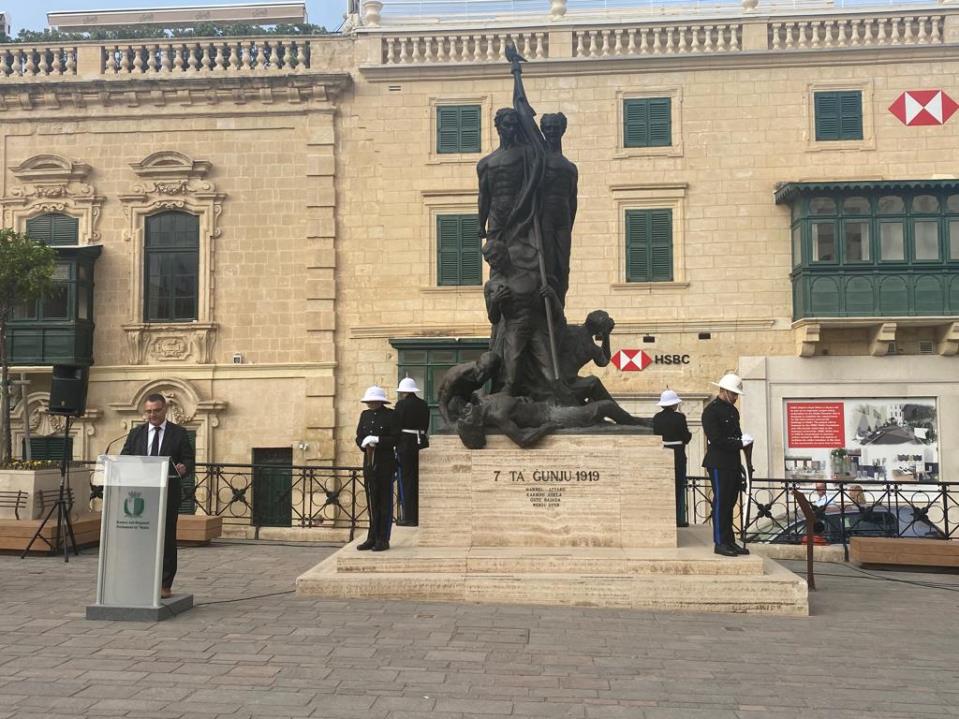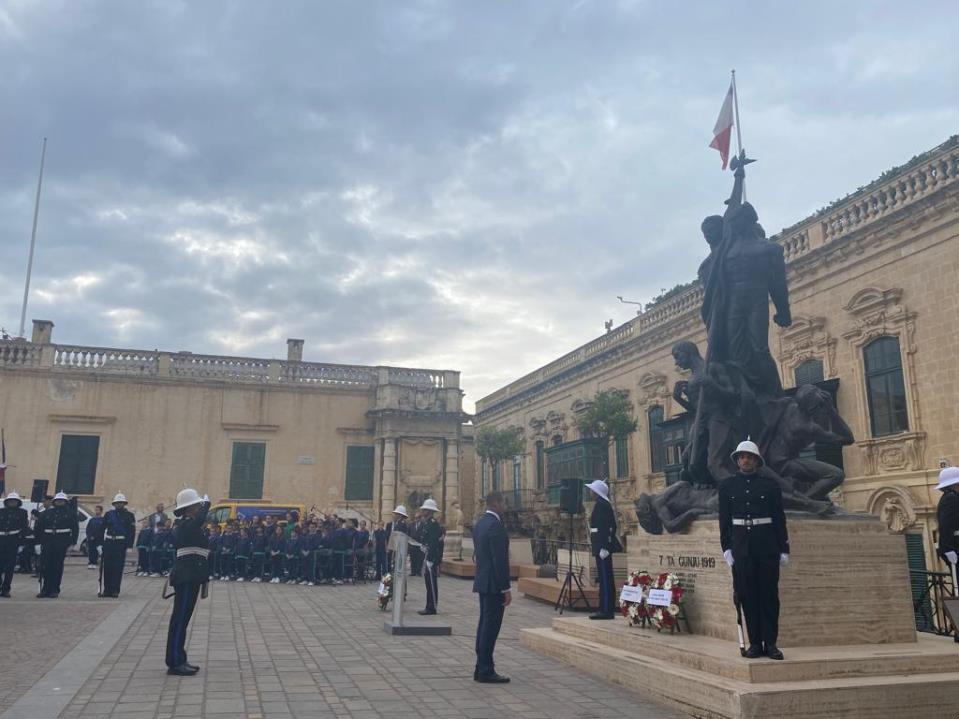A parliamentary procedure that provides citizens with a means of redress when they feel that a Member of Parliament has abused of their parliamentary privilege by making incorrect or false statements about them in Parliament needs to be established, Speaker Anglu Farrugia has said.
"Presently, individuals in such situations have no recourse, even if they suffer adverse consequences as a result of statements made about them in the parliamentary Chamber or the committees. It is essential to recognize that these consequences may adversely affect their interests in ongoing court proceedings in which they are involved. I believe the time has come for us to explore models from various countries, especially those within the Commonwealth, and adopt the most suitable approach for our parliament."
Farrugia's speech, which was read out by Deputy Speaker David Agius as Farrugia was indisposed, was delivered on the occasion of Sette Giugno, during the annual commemoration in St George's Square, Valletta.
He recalled another proposal, concerning parliamentary work relating to witnesses appearing before the committees of Parliament.
"It is worth investigating the possibility of granting privileged status to evidence given before these committees, thereby preventing their use in a court of law or before any other judicial authority," he said, adding that he understood that the implementation of such a proposal would require political commitment, an in-depth discussion on its legal implications and amendments to Maltese legislation.
During the speech, he also mentioned full-time Members of Parliament. "I still hold the view that in order to attract more individuals, both women and men, to engage in political life, while not hindering those already established in their professions who wish to contribute to society through politics, we should introduce a system that allows elected candidates to choose whether they wish to serve their country as full-time or part-time Members of Parliament."
The Speaker also mentioned the parliamentary clearance rate, deeming the Maltese Parliament as one of the most active national parliaments in Europe. He said that in the past year, during 117 plenary sittings, 34 Acts of Parliament were enacted and 52 Bills and 101 Motions were presented.

Around 1,600 documents were laid on the Table of the House and more than 134 Committee meetings were convened. Furthermore, the Chair delivered 21 rulings, some of which carried significant weight, the Speaker said.
The Speaker also spoke about the Chair's obligation to adhere to, and strictly apply, the provisions of the Standing Orders of the House, and any other applicable law.
"It is equally important for the parliamentary institution that these rulings be respected and that when Members wish to challenge a decision of the Chair, they should resort to the prescribed remedy outlined in the Standing Orders rather than take actions that deviate from and go beyond long-established rules," the Speaker said.
He pointed out that although there have been very few instances where MPs resorted to such alternative actions, it remains the Chair's responsibility to insist on the observance of the Standing Orders of the House.
The Speaker spoke about the historic events of Sette Giugno, which showed the Maltese resilience which has always helped in pushing the country forward.
He said that the riots that occurred in the events of Sette Giugno took place during a period of significant economic challenges in our country.
"Poverty and hunger were widespread due to the soaring price of bread and of other essential needs. It was a time of great political upheaval, with our country lacking a suitable constitution that did not even allow the people to express their opinions on who should govern them," he said.
He acknowledged the courage of individuals who lost their lives during the 1919 riots, as well as individuals who made important political decisions which led to the establishment of a constitution in 1921, that provided for self-government.

He paid tribute to the four who lost their lives, as well as the memory of the numerous Maltese citizens and former Prime Ministers who showed resilience towards those who colonised the country.
The Speaker also spoke about the important role that parliamentary diplomacy plays in the Maltese Parliament.
Last year, "I stressed the need for maintaining a strong focus on this aspect of parliamentary work, allowing us to actively work towards peace as an independent, sovereign and neutral country, as enshrined in our Constitution. We should assert this position firmly in international and inter-parliamentary organizations, particularly when discussing situations of conflict, war and disagreement among nations, by facilitating dialogue between the parties involved. In this regard, I mentioned that during the Inter-Parliamentary Union Assembly, where national parliaments of United Nations member states convene, I emphasized Malta's stance on facilitating discussions with the parliaments of Ukraine and Russia. Unfortunately, this position often encounters a certain resistance and indifference, even from European countries, as observed in the recent Conference of the Speakers of the Parliaments of the European Union member states that met in Prague a few months ago. In that conference, I proposed that we should express our commitment to exploring all possible avenues for Russia and Ukraine to cease hostilities and engage in peaceful dialogue. I argued that even if at the moment this seems impossible, one should at least bring this item up for discussion so as to create an opportunity for dialogue. "
The proposed amendment was disregarded by the Presidency, which exercised its right to select amendments which were to form part of the Presidency's conclusions.
Nevertheless, the Speaker said that we should continue to advocate and insist on the position for the pursuit of peace between nations.
"As we commemorate Sette Giugno each year, we honour and acknowledge the struggles faced by our forefathers, and are thereby motivated to further strengthen this esteemed institution, not only for the prosperity of our nation today, but also for that of future generations," the Speaker said.
The Speaker's speech was followed by the laying of the wreaths at the Sette Giugno monument by the Prime Minister, the Leader of the Opposition, the Diplomatic Corps, the Speaker of the House, the Mayor and the Local Council of Valletta, the Association of former Members of Parliament, the Chamber of SMEs and others.
Photos: Sabrina Zammit